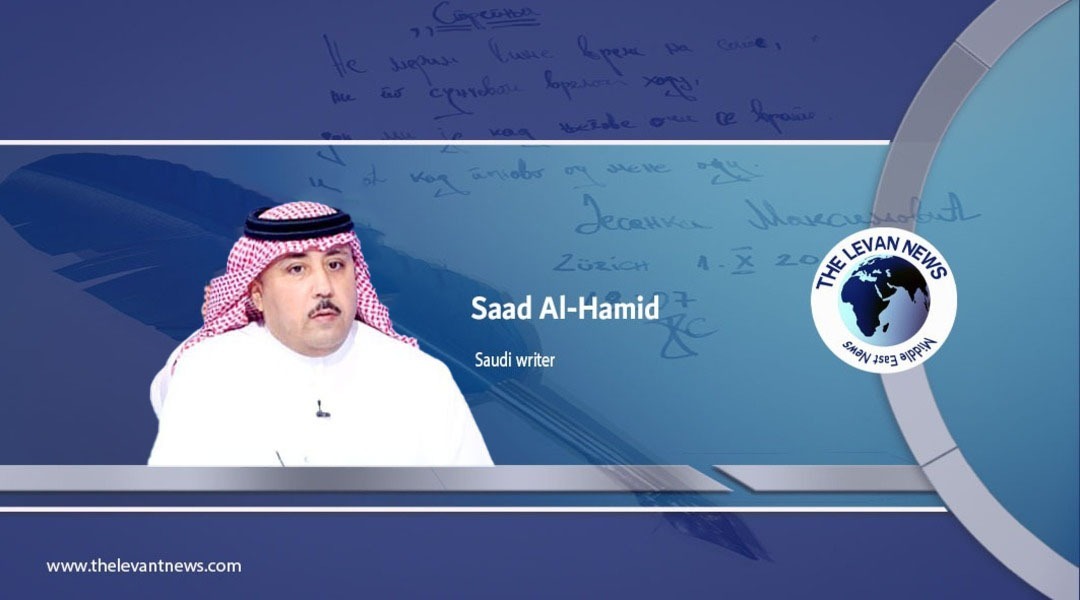-
Iraq between consensus and the absence of state

The recent Iraqi elections and their results have recently caused great turmoil in the Iraqi political life, especially the Iranian-backed militias. As well, the house of Iraqi Prime Minister Mustafa Al-Kadhimi was targeted by a drone due to questioning the election results, even though they were under the auspices of international, Arab and regional countries. Moreover, unelected parties and movements most of which allied with Iranian-backed movements protested at the Green Zone. These elections were the fifth since the 2003 invasion of Iraq.
The Sadrist bloc led by Muqtada al-Sadr won the largest number of votes, but it failed to form a majority government alone because the political system is based on partisan consensus. Since the fall of the regime of the former President Saddam Hussein, power has been traditionally shared among the country's various ethnicities i.e. a confessionalism system similar to Lebanon. The president is a Kurd, the prime minister is a Shiite because the Shiites are the largest ethnicity and the speaker of the parliament is a Sunni Arab. The reason behind the Iraqi political crisis is that Muqtada al-Sadr who (along with his allies) wants to save Iraq (in his words) rejects the coordination framework for forming the next government and the eligibility of the consensus to form it. Al-Sadr rejects participating with the framework forces in forming the largest parliamentary bloc and going with his allies from the Sunni and Kurdish forces to the parliament to nominate his candidate to be the prime minister. While the coordination framework pushes the one-third blocking minority to elect the President in the House of
Representatives to pressurise al-Sadr to yield and form the alliance together. As long as this obstructionism between the Sadrist movement and the coordination framework (which represent the Iranian-backed forces), Iraq is approaching the difficult and complicated options including dissolving the parliament and going to new legislative elections. According to Article 72 of the current Iraqi constitution, the parliament elects the president in 30 days at maximum, while the parliament did not succeed in holding a session to vote on candidates. Moreover, this complexity helps the militias to retain their control over the country to keep infiltrating into society taking advantage of the weakness of the state. Many observers believe this obstructionism is the strongest since 2003. Although it has been more than five months since the early elections, the political forces have not been able to elect a president or form a new government in the presence of two projects based on a national majority or a consensual government.
Perhaps the options offered to the opposed blocks are either to agree, make concessions and reach compromise or resort to the Federal Court to amend some paragraphs of the constitution that would remove the one-third blocking minority from the presidential election session to end the current political vacuum that paralyses the governance system and serves the interests of the corrupting militias that steal the country in addition to the Iranian and Turkish interference in Iraqi affairs which may increase in the absence of a strong authority in Baghdad and the ongoing frequent attacks from the Turkish borders on Iraq from time to time is a clear example of this. As well, the great danger from the Islamic organisations or their sleeper cells and their return to terrorist activities may find this vacuum a favourable environment to reposition themselves. Iraq now is very similar to Iraq in 2014, when it took
long months to form a government because Nouri al-Maliki refused to step down and Iraq was insecure the thing that made ISIS expand. All this and more happen at a time when Iraq is trying to rise again and restrengthen its regional position as it hosted an Arab summit and then an international conference in cooperation with France in which the KSA and Iran participated; observers consider this move enhances Iraq's position and returns its regional role as a mediator between Riyadh and Tehran as Iraq held several initial talks to find points of convergence between the parties in the outstanding issues of the region. There are fears this obstructionism will lead to suspension of the
political life for a longer time and may cause a direct clash and confrontation in the street between those blocs the thing that will affect the future and stability of political life in Iraq. What will happen in Iraq may be an inspiring model for a solution in neighbouring countries such as Lebanon. Will the voice of reason prevail over the logic of confrontation in the absence of consensus and the state

BY: Saad Al Hamid
You May Also Like
Popular Posts
Caricature
BENEFIT Sponsors BuildHer...
- April 23, 2025
BENEFIT, the Kingdom’s innovator and leading company in Fintech and electronic financial transactions service, has sponsored the BuildHer CityHack 2025 Hackathon, a two-day event spearheaded by the College of Engineering and Technology at the Royal University for Women (RUW).
Aimed at secondary school students, the event brought together a distinguished group of academic professionals and technology experts to mentor and inspire young participants.
More than 100 high school students from across the Kingdom of Bahrain took part in the hackathon, which featured an intensive programme of training workshops and hands-on sessions. These activities were tailored to enhance participants’ critical thinking, collaborative problem-solving, and team-building capabilities, while also encouraging the development of practical and sustainable solutions to contemporary challenges using modern technological tools.
BENEFIT’s Chief Executive Mr. Abdulwahed AlJanahi, commented: “Our support for this educational hackathon reflects our long-term strategic vision to nurture the talents of emerging national youth and empower the next generation of accomplished female leaders in technology. By fostering creativity and innovation, we aim to contribute meaningfully to Bahrain’s comprehensive development goals and align with the aspirations outlined in the Kingdom’s Vision 2030—an ambition in which BENEFIT plays a central role.”
Professor Riyadh Yousif Hamzah, President of the Royal University for Women, commented: “This initiative reflects our commitment to advancing women in STEM fields. We're cultivating a generation of creative, solution-driven female leaders who will drive national development. Our partnership with BENEFIT exemplifies the powerful synergy between academia and private sector in supporting educational innovation.”
Hanan Abdulla Hasan, Senior Manager, PR & Communication at BENEFIT, said: “We are honoured to collaborate with RUW in supporting this remarkable technology-focused event. It highlights our commitment to social responsibility, and our ongoing efforts to enhance the digital and innovation capabilities of young Bahraini women and foster their ability to harness technological tools in the service of a smarter, more sustainable future.”
For his part, Dr. Humam ElAgha, Acting Dean of the College of Engineering and Technology at the University, said: “BuildHer CityHack 2025 embodies our hands-on approach to education. By tackling real-world problems through creative thinking and sustainable solutions, we're preparing women to thrive in the knowledge economy – a cornerstone of the University's vision.”
opinion
Report
ads
Newsletter
Subscribe to our mailing list to get the new updates!






















